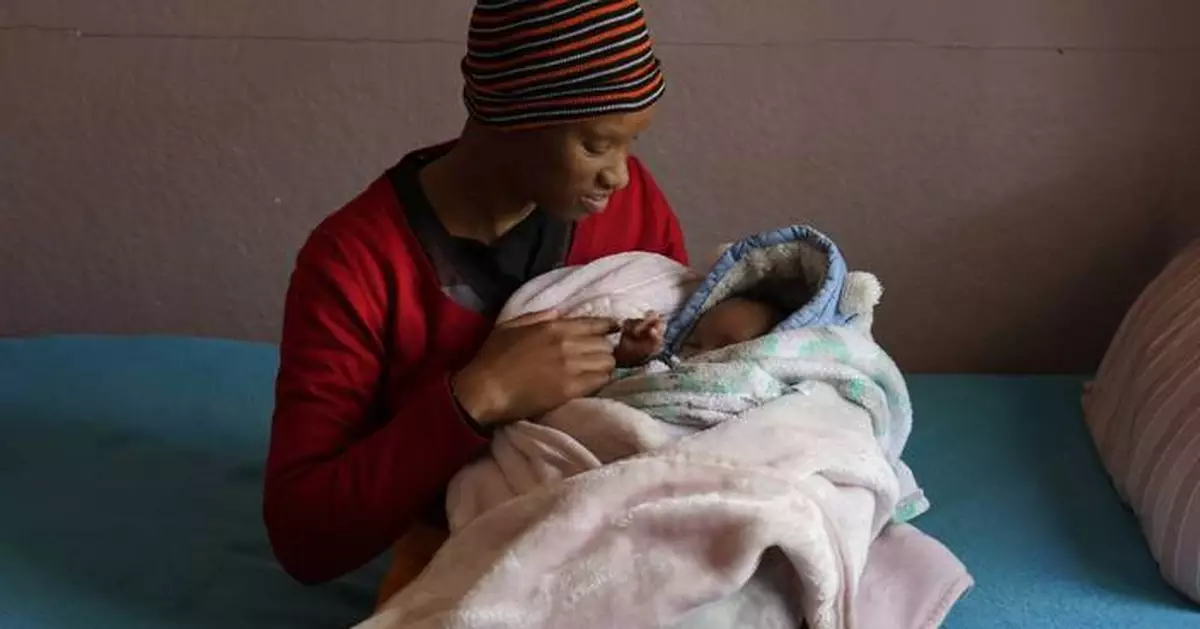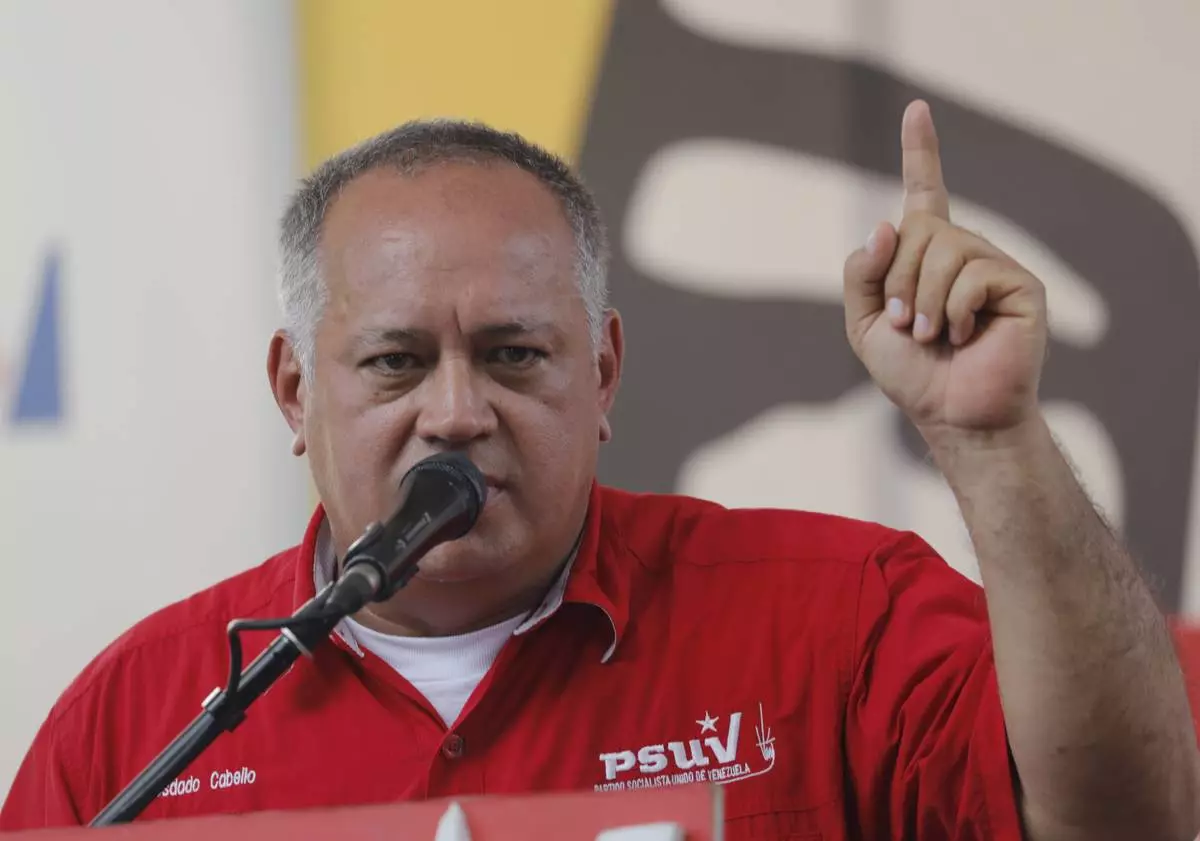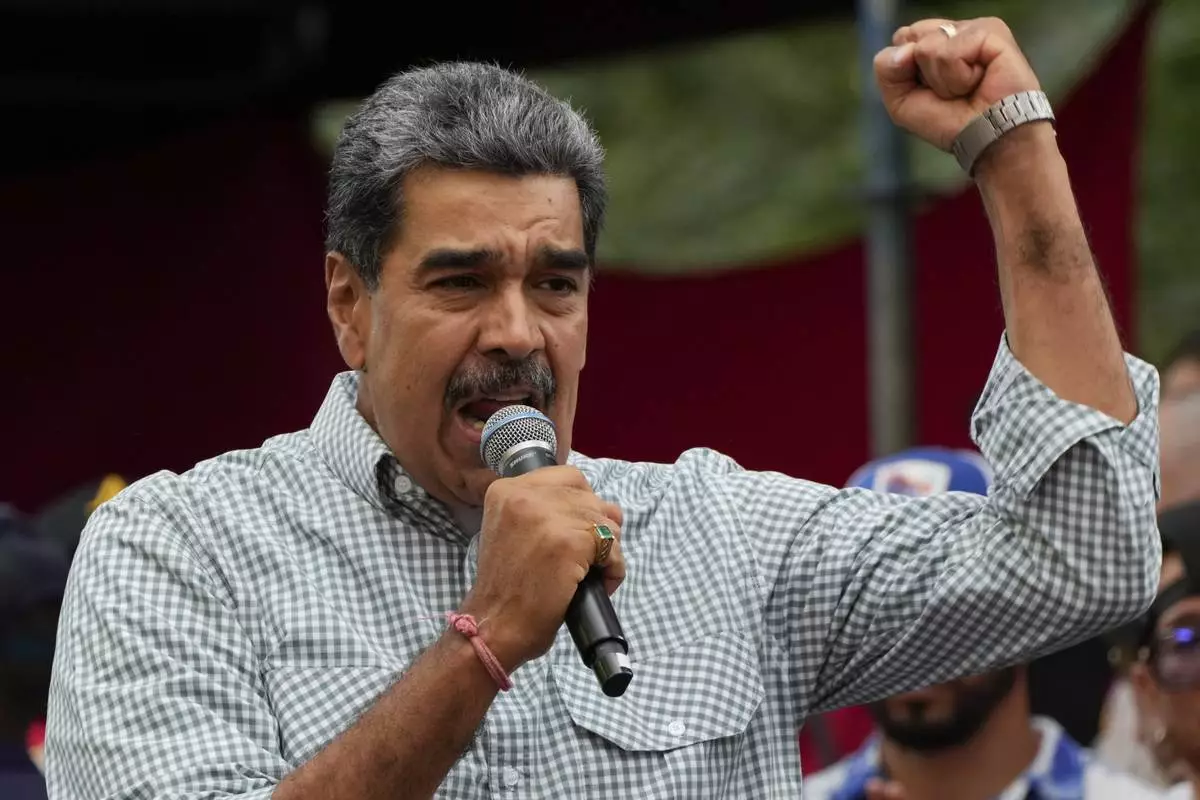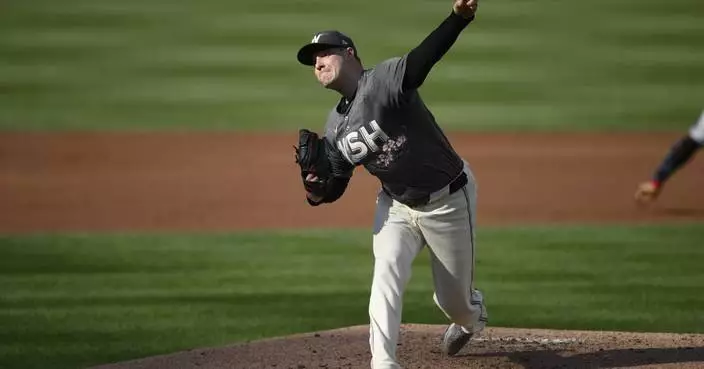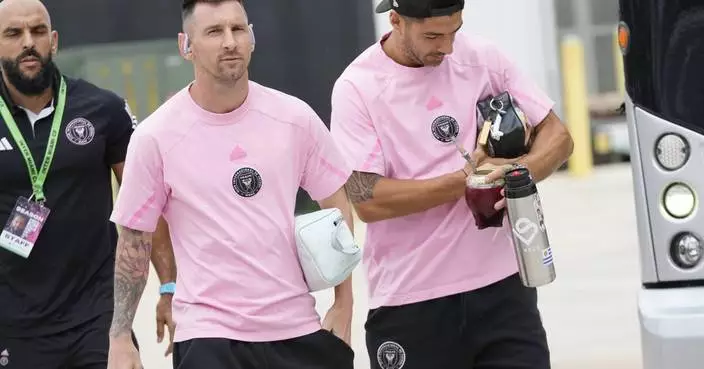PRETORIA, South Africa (AP) — It's a worrying question for health officials in one of the richest and most developed areas of the African continent: Why are babies being born with HIV when free medication is available to prevent mother-to-child transmission?
In the first half of this year, 232 babies were born with HIV in South Africa's Gauteng region, which includes Johannesburg and the capital of Pretoria and is home to at least 15 million people.
“We do still find it very concerning that in this day and age, with all the preventative programs that’s available free of charge at our clinics, that we are still finding babies testing positive,” said Melanie Langeveldt, the director for primary healthcare programs in Tshwane, which includes Pretoria.
Mother-to-child transmission of HIV globally remains a concern for UNAIDS, which estimates there are 120,000 new infections annually in children aged 14 years and younger around the world, while over 1.3 million children are living with HIV.
South Africa has one of the highest rates of HIV in the world. About 12.7% of its population, or about 7.9 million people, live with HIV. The country has about 150,000 new infections every year.
Pregnant women in South Africa can access HIV testing and antiretroviral therapy free of charge from health facilities.
It is not clear why the more than 200 pregnant women across Gauteng didn't take advantage of the services this year, or why 211 women in the second half of last year didn't either.
Data from South Africa's other regions was not immediately available.
Alarmed health officials believe even one case of mother-to-child HIV transmission is too many, considering the availability of treatment.
“With the medicines and science available today, we can ensure that all babies are born – and remain – HIV-free," UNAIDS executive director Winnie Byanyima said in July, adding that resources must be made available everywhere around the world.
The data in Gauteng shows that many of the mothers who gave birth this year to children with HIV did so in government-run health clinics where the free HIV testing and treatment is available.
At least 55 of the babies born were delivered in Johannesburg, which has 125 of the clinics, and 39 were born in Pretoria, which has 24 of the clinics.
Langeveldt said one contributing factor is the failure of some pregnant women to present themselves at a clinic as soon as they fall pregnant, with some women not aware of their HIV status.
Other pregnant women receive medication but the treatment is interrupted for various reasons including migration. Some pregnant women are infected during pregnancy or breastfeeding. And some women do not stick to the guidelines of continuous and exclusive breastfeeding for the first six months.
Such factors are seen globally in mother-to-child transmission.
Langeveldt said her department is now engaged in widespread campaigns to inform women that mother-to-child transmissions are preventable if the strict treatment offered at clinics is followed.
“We have services. It is free. Please come and present so that we can assist you and prevent this in the future,” she said.
Officials also recommend that new mothers test for HIV every three months while breastfeeding, and that they encourage their partners to test for HIV.
Women who gave birth to babies with HIV would not speak with The Associated Press.
Mapule Radebe is among the women who have benefited from medical treatment to avoid passing on HIV to her children.
In 2015, she tested positive for HIV and was soon receiving antiretroviral treatment. She was concerned about the possibility of having children born with HIV but learned that transmission of the virus could be prevented.
"I took my medication throughout my pregnancy, and after birth I still continued with my treatment. After I gave birth I still continued with my medication and my child was also given medication for the first six months after she was born,” Radebe said.
This year she gave birth to her second child who was also free of HIV.
“To all women out there who are HIV positive and expecting babies, I would urge them to continue taking their treatment throughout their nine months, and continue doing so even after giving birth, for the sake of their children,” said the 35-year-old who currently lives at Nkosi's Haven, a Johannesburg home that assists women with HIV.
For more news on Africa and development: https://apnews.com/hub/africa-pulse
The Associated Press receives financial support for global health and development coverage in Africa from the Bill & Melinda Gates Foundation Trust. The AP is solely responsible for all content. Find AP’s standards for working with philanthropies, a list of supporters and funded coverage areas at AP.org.
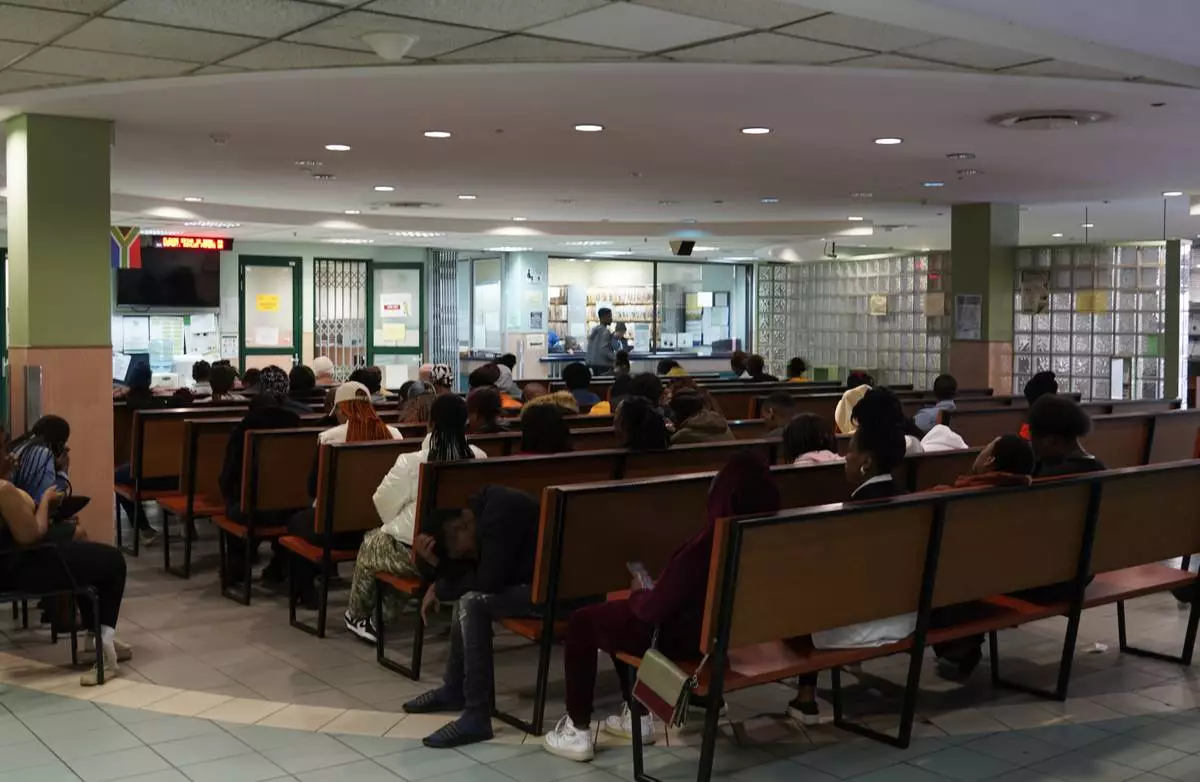
People queue at a government-run health clinic where free HIV testing and treatment is available, in Pretoria, South Africa, Tuesday, July 23, 2024. (AP Photo/Denis Farrell)
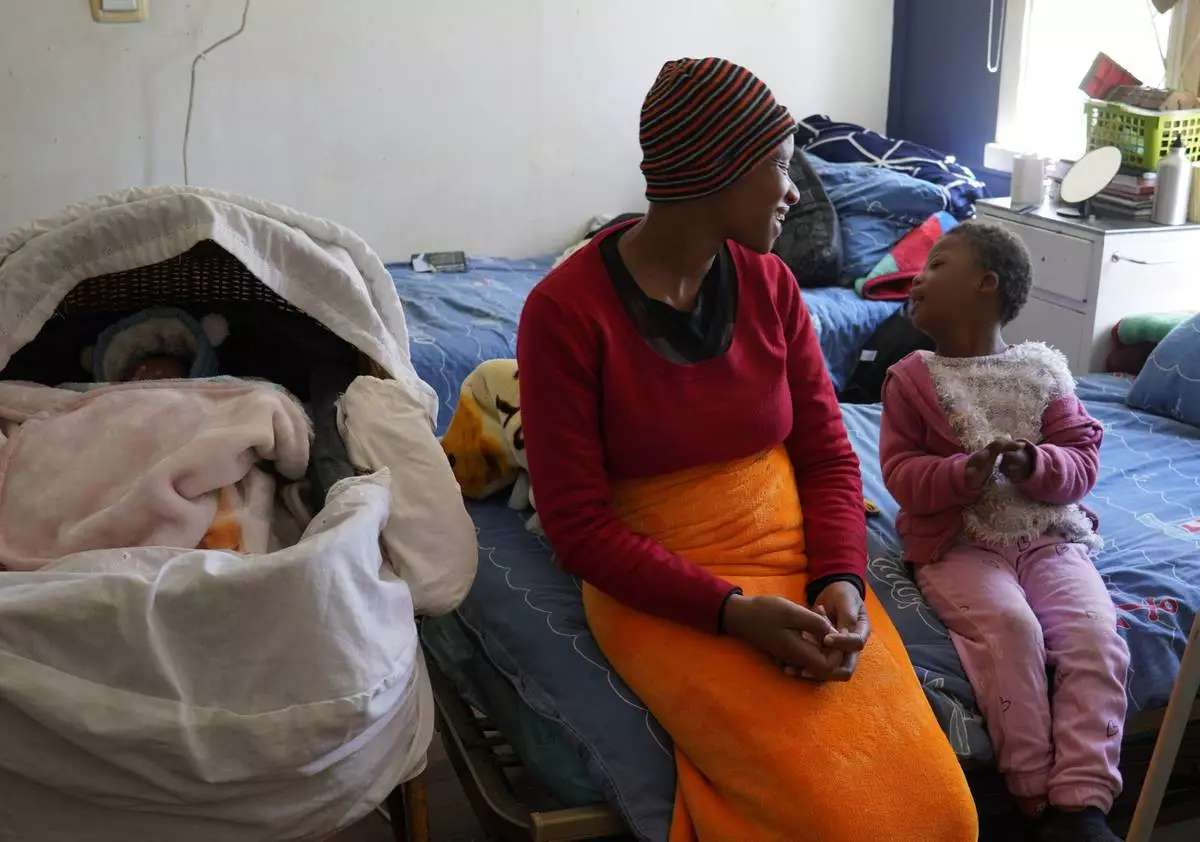
Mapule Radebe sits with her daughter Morello, right, and baby Minehle at Nkosi's Haven, a home that assists women with HIV, in Johannesburg, Monday, Aug. 5, 2024. (AP Photo/Denis Farrell)
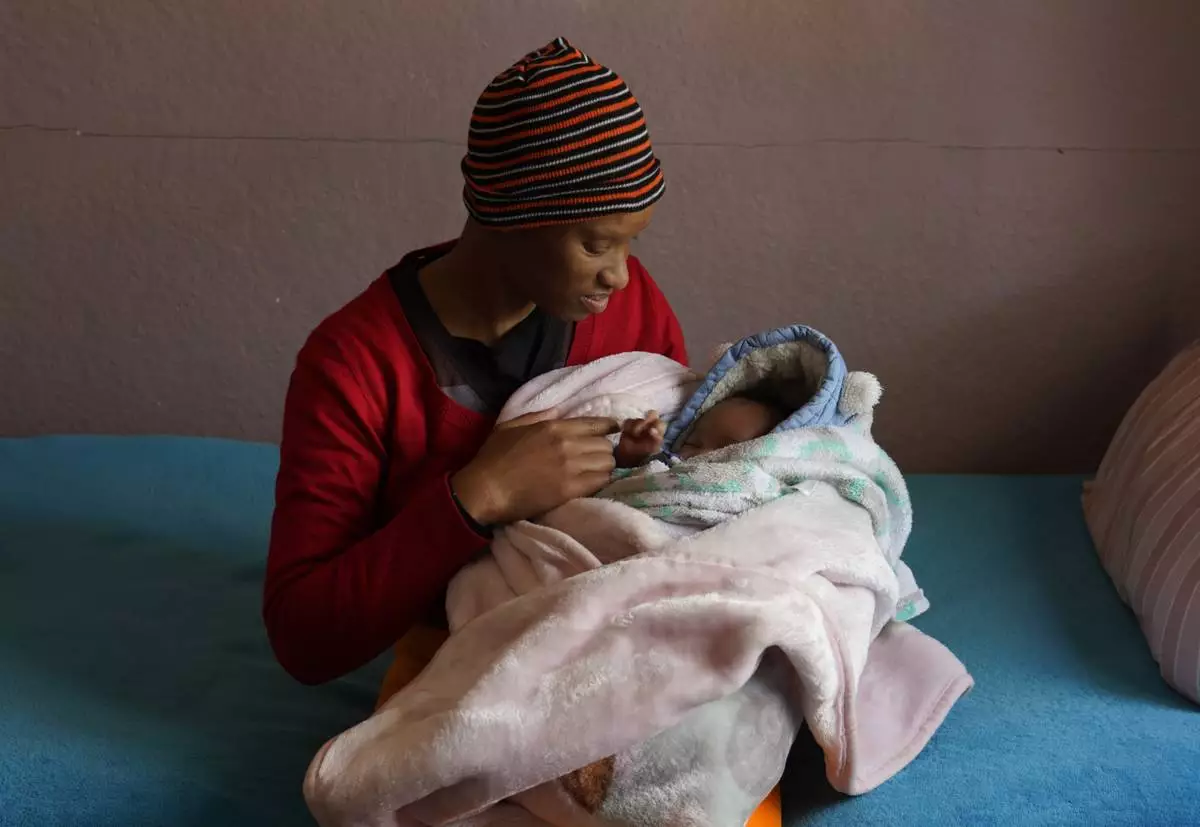
Mapule Radebe holds her baby Minehle at Nkosi's Haven, a home that assists women with HIV, in Johannesburg, Monday, Aug. 5, 2024. (AP Photo/Denis Farrell)


